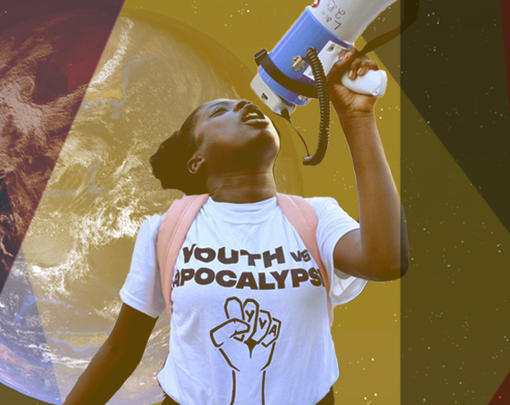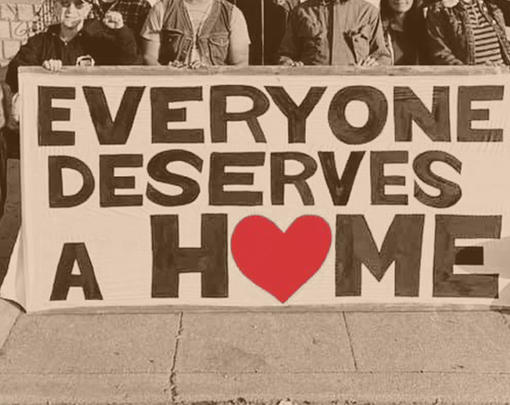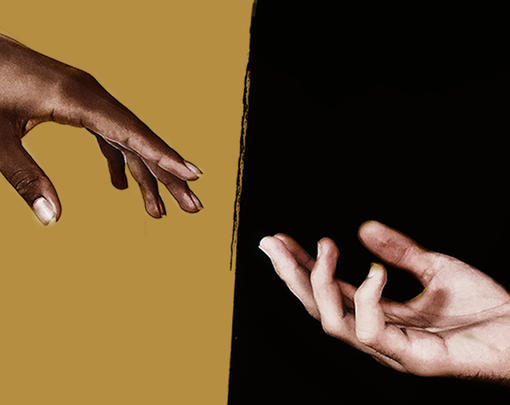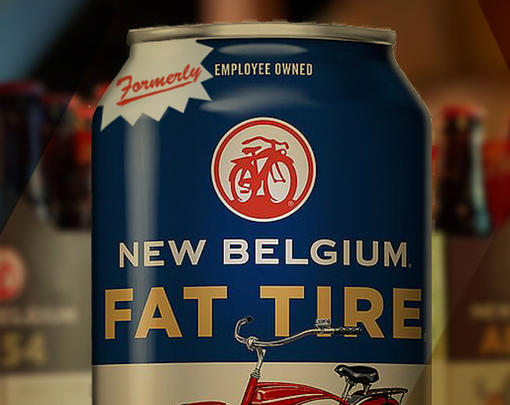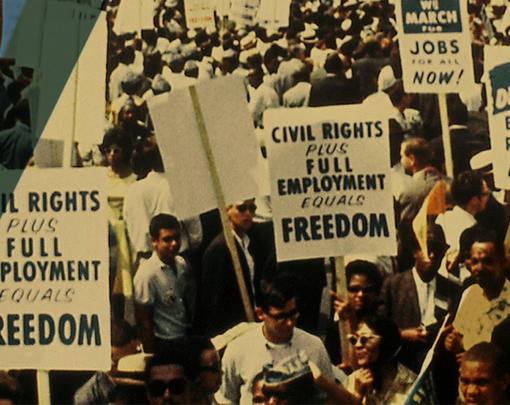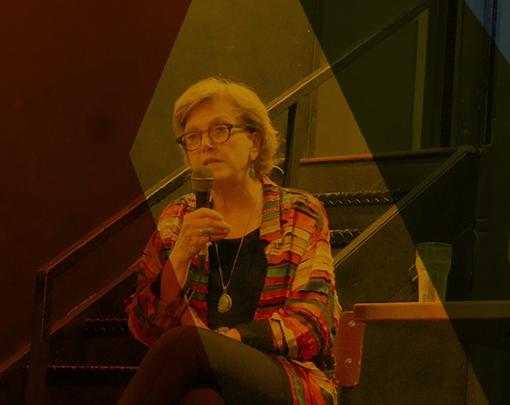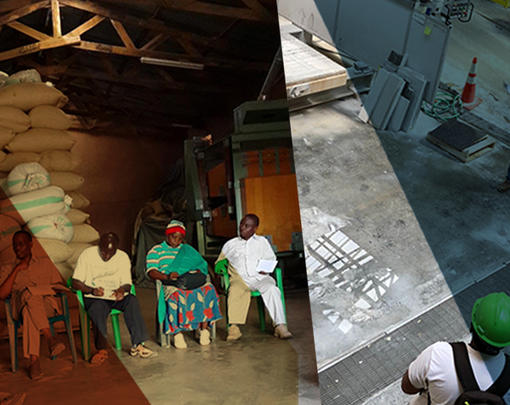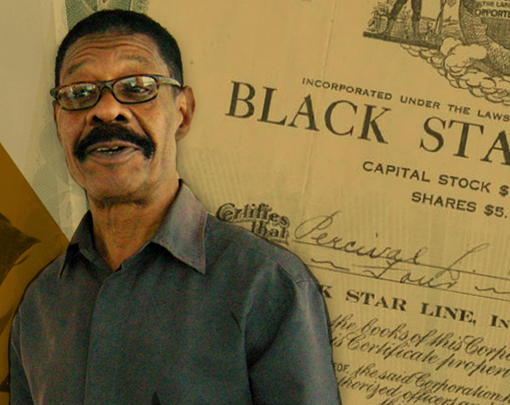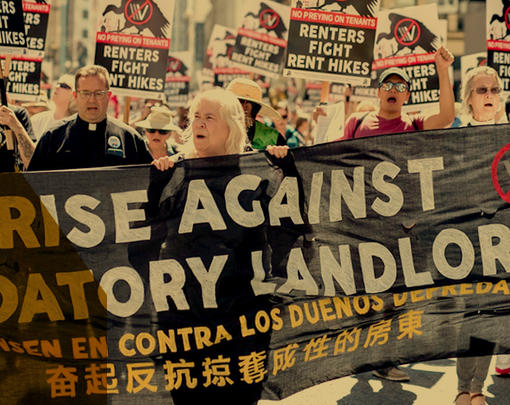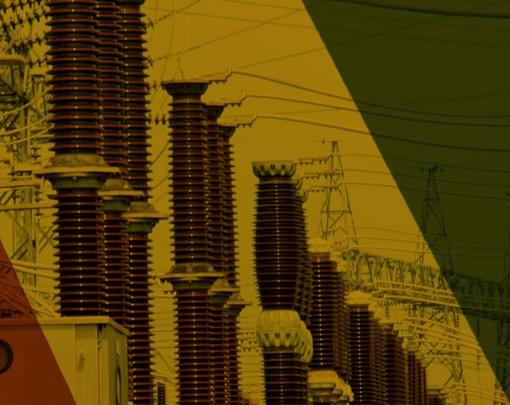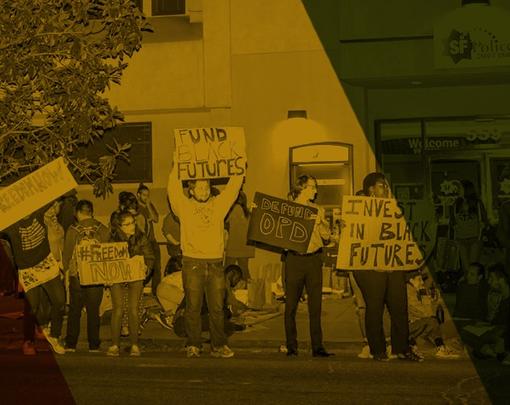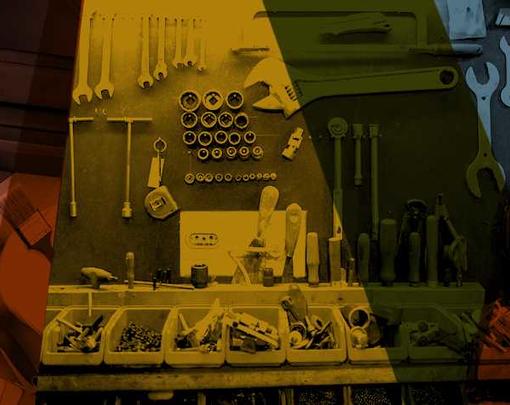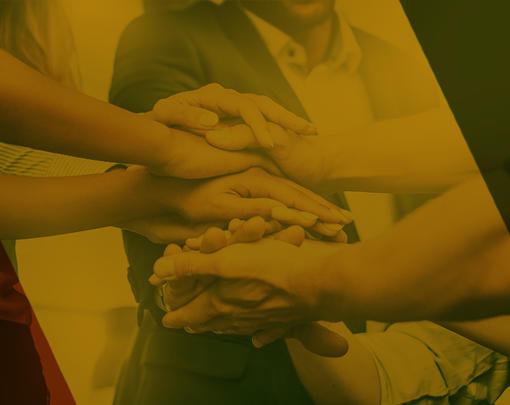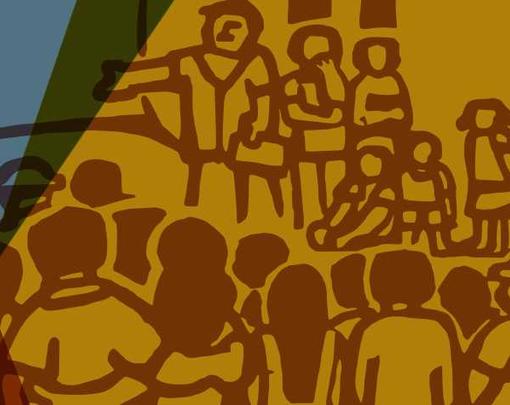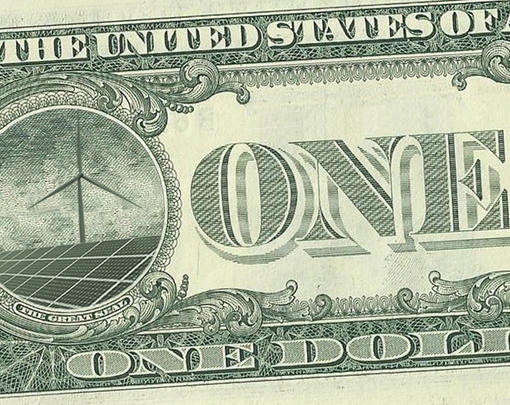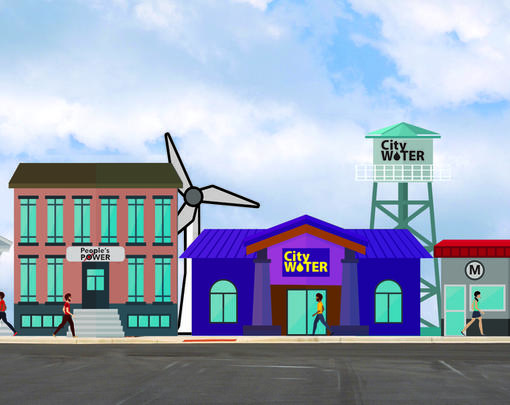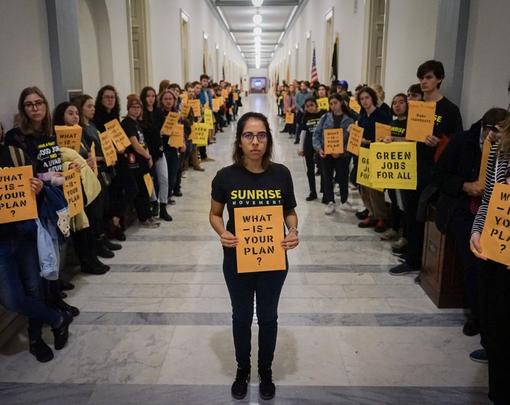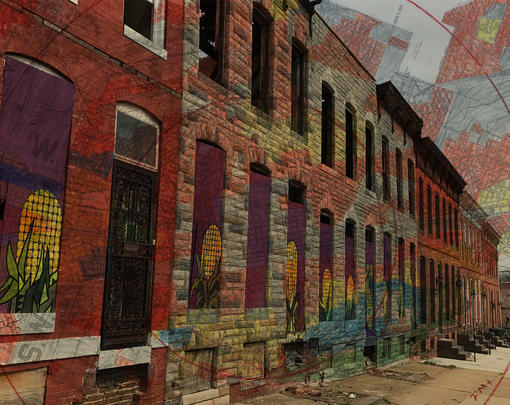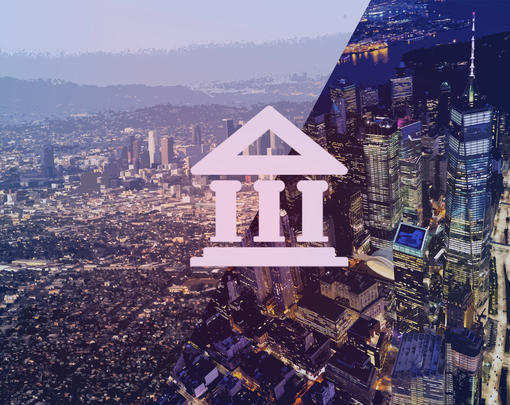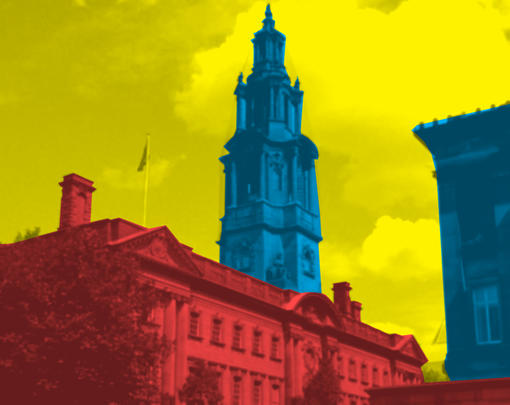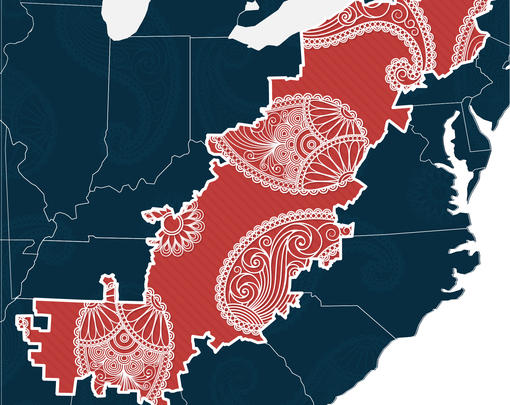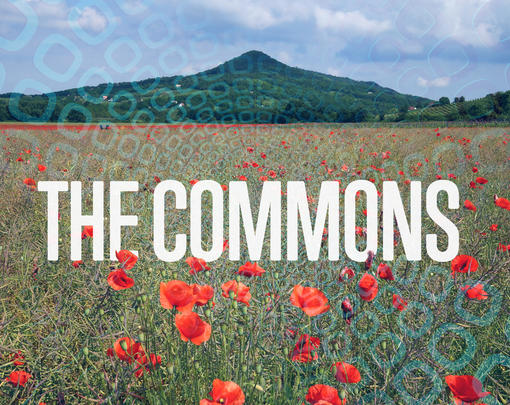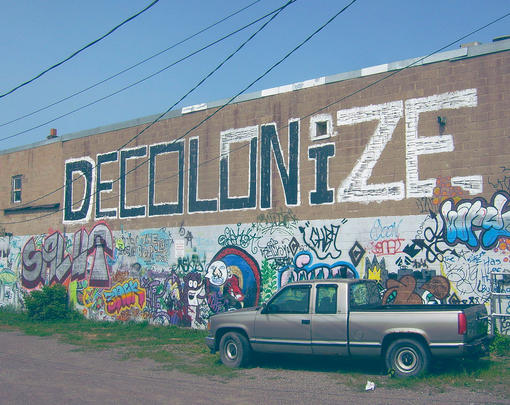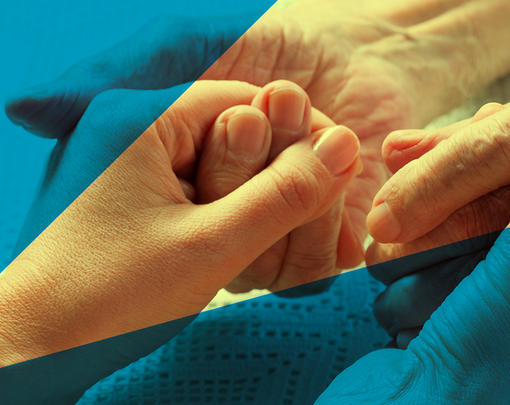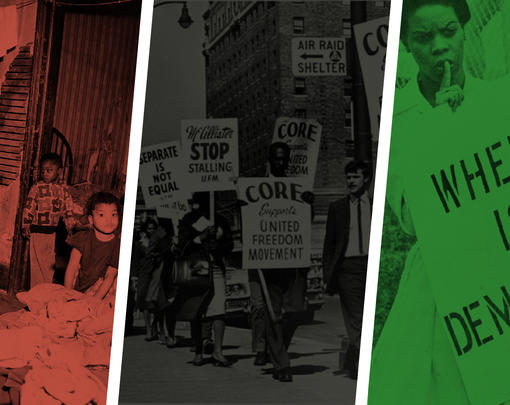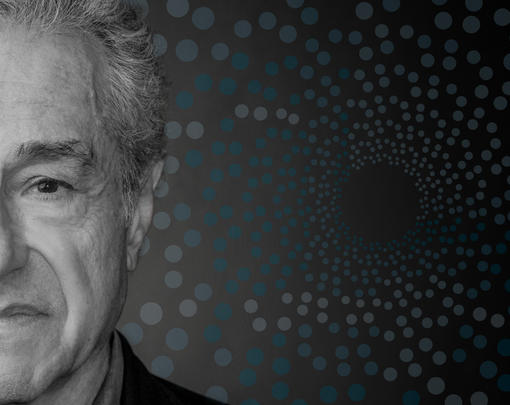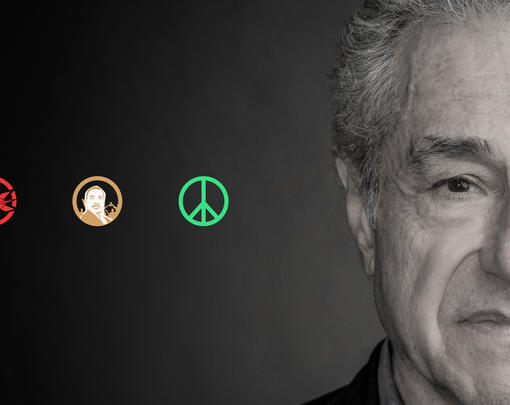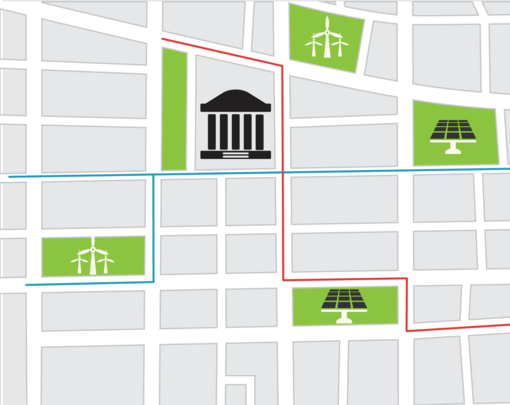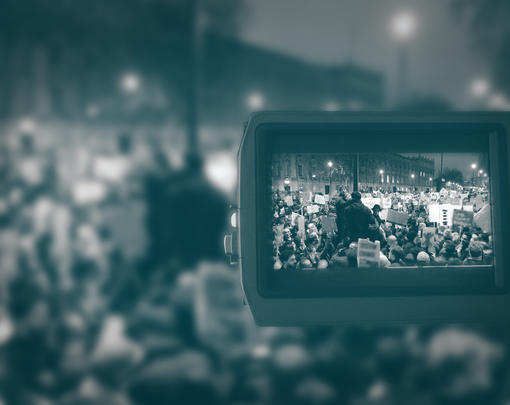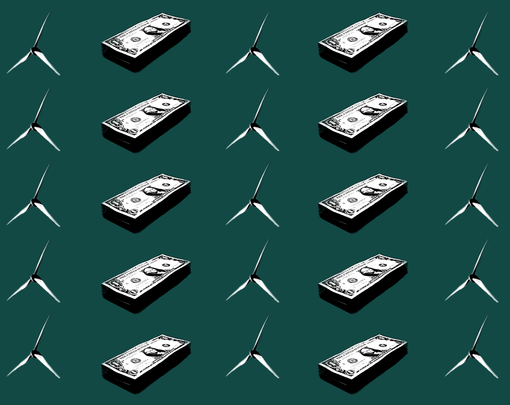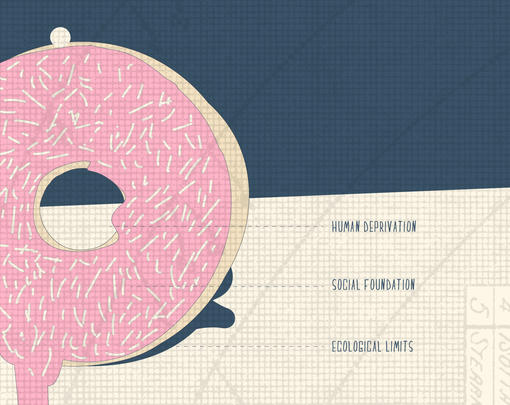This week, Adam sits down with Marjorie Kelly to find out why she believes that worker ownership is fundamental to building a new economy and highlights a new initiative to begin realizing that vision.
Subscribe to the Next System Podcast via iTunes, Soundcloud, Google Play, Stitcher Radio, or RSS.
Adam Simpson: Welcome back to the Next System Podcast. I’m your host Adam Simpson. Joining me today to talk about what she calls “capital bias” as well as generative design and democratic ownership is Marjorie Kelly. Marjorie is the Executive Vice President as well as Senior Fellow at the Democracy Collaborative, a Project Director at the Learning/Action Lab for Community Wealth Building, and an Associate Fellow at the Tellus Institute. Additionally, she is the author of Owning Our Future: The Emerging Ownership Revolution and The Divine Right of Capital: Dethroning the Corporate Aristocracy. Marjorie, thank you for joining me today.
Marjorie Kelly: Thanks for having me.
Adam Simpson: I wanted to ask, Marjorie, there’s this concept of capital bias that you recently been working on, this dilemma, which you’ve described as the core value around which the current system is organized. In your own words how would you describe capital bias to someone who hadn’t heard this expression before?
Marjorie Kelly: We, as a society, we understand the idea of a racial bias. We understand gender, or sex bias, but we don’t yet have language for capital bias. And, this works in a very similar way, it’s both attitudes and institutions that serve one group at the expense of another. In the case of capital bias it’s attitudes and institutions that favor those who have money. I mean in a way it’s kind of obvious. Right? But, if you look at it in some kind of systematic way, you can say, “Well, what is the business reporting in our culture?” It’s The Wall Street Journal. Right? It’s not “The Labor Market Journal.” Wall Street is considered the capital of economics. It’s all about finance, where you look at who has the power inside corporations, who elects the board of corporations? Well, it’s capital. It’s not workers.
I mean, workers go there every day, and do the work of the place, but they’re not considered members of corporate society in the same way that women, or blacks [were] at one time not considered full members of American society, so there’s discrimination. You look at financial statements, which for most people are Greek, but basically the bottom line is income for capital holders, that’s the aim of a company is to maximize income for capital holders, and minimize income to labor. It’s called ”holding down costs.” When you define income to workers as a cost, you define income to capital as profit. So, one is bad, one is good. That’s all built in. In the same way we used to talk about mankind. Male bias, gender bias was built in to how we even thought about history, how we thought about leadership. It seemed normal that every president of the United States has always been a man. Well, that’s a result of gender bias, and they interrelate to race bias and capital bias, but it’s an attempt to name something that I think we all know is there, but actually is a very specific phenomenon, which has specific ways that it is carried out.
Adam Simpson: Interesting. While you’re talking, it occurs to me that when you describe capital bias, something that one of The Next System co-chairs Gus Speth talks about a lot is the indicators we use, like GDP—our main concern is that this output grows, meanwhile it’s not really connected to wellbeing of the things that The Wall Street Journal, as you would say, aren’t really caring about.
Marjorie Kelly: Right. That’s right. GDP, carries this implicit bias toward growth. More is better. It’s built into the whole notion of GDP. Well, profit carries an implicit bias that more money for wealthy people is good. The stock market is supposed to go up, that means more money for wealthy people. More than 70% of all the stock in the stock market is held by the richest 10%, so every night when we hear about the rise and fall of the Dow Jones industrial average we’re hearing about the performance of rich people’s investment portfolios. And, we’re led to believe that means the economy is doing well.
Adam Simpson: Right. There’s a lot of people thinking through the intensification of economic inequality in the economy, but rather than economic inequality, you suggest that framing the problem through the lens of capital bias is more direct and more effective, what do you mean by this?
Marjorie Kelly: Yeah. Well, inequality is a great word as far as it goes. I mean, what I like about the word inequality is it says in one word this massive problem that we finally start to talk about—we didn’t used to talk about it, we used to talk about poverty, which is different than inequality, because it’s broader, but what inequality lacks is any notion of causation. Where does inequality come from? It’s kind of like the weather, or something. It’s just more inequality, but we don’t have a sense of where it comes from, and what capital bias suggests is that the increasing wealth of some is actually causally related to the lowering income of others. Now, that’s not something that we talk about. Very much. But, they are related, and the reason is capital bias.
Adam Simpson: Right. It’s interesting, because it implies from the jump that this is a system problem. You’re describing it like economic inequality is an outcome and capital bias is the actual motor.
Marjorie Kelly: Yeah. I think that’s right. It’s the deep values based in the human heart motivator. That’s where so much of this, that’s where this all begins. Yeah. It’s not a competition: “my word is better than the other words.” We need lots of words. Think about all the words we have for money, we have capital, we have rent, we have equity, we have debt. I mean, you look up in the thesaurus how many words we have for money, and it’s staggering. But we need more words to describe inequality and what causes it, and what’s going on.
Adam Simpson: Right. Just that beyond economic disparities that the capital bias is related to, if not one of the key drivers of, racism and sexism. I was wondering if you could elaborate your understanding of the connection there.
Marjorie Kelly: Yeah. I don’t think I would say capital bias is actually a driver for racism, or sexism, but I would say they’re all intertwined. It’s helpful to look at it historically, because when you go back to the monarchy, and aristocratic society, which used to be pretty much all over the world from the dawn of time.
Adam Simpson: In one form or another.
Marjorie Kelly: Yeah. You had it in Egypt. You had it in China. I mean, you had it in different forms. A few exceptions, among indigenous peoples, but for the most part it was the global paradigm for millennia. And, intertwined, there was this notion that certain people are better than others, and they ruled by right, by divine right in many cases, people said, so who were those people? Well, they were men, they were mostly white, and they were rich, and they were also called, noble, they had blue blood. Right? We’ve gotten rid of that idea at least.
Adam Simpson: Yeah. We like to think so.
Marjorie Kelly: But, it was all intertwined. There’s this wonderful book that I read, I think it was called, Keeping the Lower Orders in Their Places, but this was something that Edmund Burke said, at the very dawn of the enlightenment, and the notion of democracy, which was the shocking new idea, the conservative idea, which had ruled from millennia suddenly had to articulate itself, it never needed an ideology, because it just was the way the world was.
But, it suddenly needed to articulate itself, and Edmond Burke said, “Well, the lower orders must be kept in their places.” You can actually say these things in those days, and the lower orders were explicitly understood to include women, blacks, Jews, and workers. Those were the lower orders, and they must all be kept in their places, because otherwise society was at risk. One by one, we’ve been peeling away these biases, we’ve been saying, “Well, no, maybe it isn’t right to discriminate against Jews.” We certainly learned that in World War II. We learned the horror of where that kind of thinking leads. We learned at great deal, we had to go to war over it, knowing enslaving black people is not a reasonable way to run a society.
And, we’re still learning, unpeeling the lessons of that. We learned that women deserve a vote. Women are human beings, too. What a radical concept. One by one, we’re starting to pierce these biases and say, “No. Maybe that’s the way the world always has been, but maybe it doesn’t make any sense.” Okay. There’s a final bias that we have not yet peeled away, we have not yet looked directly at it in this capital bias, which says, wealthy people are more important than everybody else. They deserve more rights. They deserve more power, and all the wealth that they have is deserved, and is legitimate. Now, it’s a very scary thing if you start to say, maybe that’s not true. How are they related? That was your question. You have to start from the premise that the wealth of capitalism rests to a large extent on extraction from people of color. Where did the wealth of Europe and western countries come from? Well, a lot of it came from colonies. Africa was colonized. Was treated as a plantation, basically of wealthy people back home, and extracting wealth was the aim. The people themselves were treated as property, and the whole wealth of southern society rested on slavery. It’s a really painful thing to look at.
How much of the wealth of our society really began with extraction from people of color? That continues today, I mean, you look at the housing bust in 2008, 2009 people of color lost homes at a far greater rate, their wealth collapsed, and basically equity was extracted from their homes to a far greater extent than white people. Now, when you look at that and you say, “Was it extracted because they were people of color?” What I think of it as, I think, that wealth extraction is now willing to extract from anybody. If you’re low income, they don’t really care what color you are, if they can get some money off of you.
I think that the way that racism today interacts with capital bias is that if you’re vulnerable in any way you’re more susceptible to extraction. If you don’t understand how to read a credit card statement, if you don’t understand that the mortgage you’re signing might be an abusive one, if you don’t have a lawyer to support you, you don’t know how to understand the documents, you’re subject to extraction. Now, whether you’re poor white, or poor black this system is a little bit indifferent to that. It really is mostly interested in just financial extraction. That’s what I say, in a way extraction is becoming an equal opportunity.
Adam Simpson: Well, in your book, Owning Our Future, you just suppose extraction with, I guess, you might say generation, or generative design. How is, would you say, extractive design related to this concept of capital bias?
Marjorie Kelly: Yeah. Well, in Owning Our Future, what I’m trying to point out is there are different ways to design ownership. We don’t think of ownership as having a design. We think of it as a fact. Right?
You own something, you don’t. Well, in fact ownership is a bundle of rights that can be distributed in different ways, and it can be designed in different ways. I look for example at indigenous peoples owning the forests of Mexico, and because these are people who live in the forests they have a vested interest in keeping the forest standing, and keeping it thriving. They found that there’s less illegal harvesting of forests, when you have indigenous people owning the forest, because they live in the forest. They’re watching for this illegal harvesting. I found the same thing in Maine, when I look at lobster. The lobster industry you have only owner occupied boats can fish in the sensitive inner waters, and you have to catch lobster using traps, you cannot use big nets. You cannot just trawl the ocean bottom, and destroy the habitat, and take up all the lobsters, so there’s not lobster ever in the future.
That’s outlawed. Extracting harvesting of lobster is not permitted, and ownership design, only in small owner occupied boats can be there, not the big corporate owned boats that go out deep. Ownership design contributes to this, what I call generative, its generative design, it creates the conditions for life to thrive. Whereas, the big corporate boats that are just trying to extract everything, they would actually destroy the conditions for life. I’m trying to say, there’s extractive design, and there’s generative design. I had to make up a word, because there isn’t, there aren’t words for either of these, so I made up both of those words. Now, extractive, people like and they use. Generative hasn’t caught on as much, but these days I call it more democratic. We’re all searching for the language.
Adam Simpson: Everyone loves democracy.
Marjorie Kelly: Yeah. Democracy is good. The difference between extractive and generative design, extractive design is aimed at maximum extraction of financial income, that’s its aim—so it’s driven by capital bias, which says that basically financial wealth matters more than anything else, including living well, and the people who hold financial wealth deserve more power than others, therefore their aims predominate inside whatever entity you have, whether it’s a company, or whatever. That’s how capital bias gives rise to extractive design.
Adam Simpson: Sure. It seems like this kind of thesis of your book is that you’re identifying ownership as the kind of intervention point in this system of extraction as kind of the fulcrum, or the turning point toward a more generative system.
Marjorie Kelly: Yeah. It’s very unlikely, I think, for many people. We don’t understand, most of us cannot stand to read The Wall Street Journal, or don’t really want to understand how to read financial statements. It’s this kind of Greek to me kind of phenomenon, and we don’t understand that, that’s really where the act is in the economy. When you look at it, my colleague Gar Alperovitz says the same thing, is that any economy throughout history is its foundational design is ownership, if you had the monarchy and aristocratic society, you had the landed class.
Land was the property that valued, that mattered, it created value, because it was an agricultural age, so landing the land was where economic power laid, so you had land was owned by the aristocracy and the monarchy. In the industrial age of value creation began to be industry, and factories, so you had robber barons owning the factories, owning the railroads, so that’s the early stage of kind of robber baron capitalism. Then, ownership shifted into the stock market, so you no longer had families owning it, now, it was held in the stock market, so wealth became financialized. And, we’re in an era now of financialization where the real power is with finance. In socialism, you have state control of enterprise. Each kind of economy’s most fundamental characteristic is the design of ownership. To change, to shift to one paradigm of ownership to another is foundational to creating a new economy. It’s a slower way of working. It’s not as fast as let’s create a $15 minimum wage. It’s not as fast, so you need other things, too. But, foundationally if you want a different economy that’s designed for different outcomes in a stable and ongoing way, it’s going to involve doing kind of ownership.
Adam Simpson: Right. Well, this brings us, I think, quite naturally to worker ownership, which is something you documented in a lot of your work, it’s something that I think you still work on the majority of your time, today. What is unique about the paradigm of worker ownership as opposed to, because I think a lot of people would have kind of as a premise that it’s part of the kind of maybe the Orwellian sense of our economy, we call it a free market. But, we have a sense that we are free enough in this economy, and the sense that ownership should be distributed, and democratized in that sense, that wouldn’t occur to a lot of people. I’m wondering how you would kind of describe worker ownership as this critical paradigm, that you’ve come to believe in.
Marjorie Kelly: Mm-hmm (affirmative). Yeah. Back in 1776 in the US we began a process of democratizing politics. We have never democratized economics. It used to be that the whole world was knit together. In the monarchy they had all the social power, they had all the economic power, they had all the political power. Those have become separate spheres. We’ve never democratized economics, and we don’t think about democracy of having any business being in the economy, we think, no, democracy is over here, that’s more government, and the economy is just what it is, what it is, and the wealthy people own everything, and we just think that’s normal. Why does worker ownership matter? Let’s start from the point of view of families. One of the things that John Barros said to us, and he’s the head of economic development in Boston, he said, “It takes a job to get out of poverty. It takes assets to stay out of poverty.” Something like 47% of Americans, today, cannot put together $400 in an emergency. Now, think about that, you break your ankle, your tire goes flat, your kid needs a school band uniform, I mean, whatever, you can think of a million reasons that you might and need $400, and to think that many Americans cannot put together $400, I mean, that’s scary. You would live in a state of kind of, I think, economic anxiety, pretty much, all the time. Is that a good life? Is that the life of life, liberty and pursuit of happiness? It’s not. That’s a terrible quality of life. Most of us don’t think about assets. Most of us don’t understand the difference between income and assets. An asset is something that has enduring value, and it can actually generate wealth over time. It’s different than just hit of income, which can start or stop. If workers own an enterprise, they’re much less likely to lay themselves off. They’re much less likely to outsource their jobs to China.
They have not only a good income, about 12% higher than other kinds of companies, research shows, they have about twice the retirement savings, so you go into retirement, you have a little bit of social security income, but you have this hit of assets, kind of this cushion that you can use to protect yourself, and take care of yourself. Now, you’re starting to have the foundation of economic security, financial stability. You can send a child to college. You can buy a home. You can weather a period of unemployment. Assets are foundational. There’s a reason that every economy in the world has been a question of who owns the assets. Who controls the assets? That’s where the real power is, that’s where the real security is. We’re so beaten down in our society we don’t even think about ordinary people needing, and having a right to own more assets.
It’s just not even part of our mental map. Most people don’t even know what an asset is. Back in the early days, there was among the early feminists working for the vote, no, it’s even before then, the very earliest days, when women would start to get there, and talk about this radical idea of women’s rights, somebody suggested, I’m not sure if it was Elizabeth Cady Stanton, but someone of that stature suggested, “Well, women should have the vote.” Someone else said, who was equally radical said, “We can’t go that far.” It was considered just unimaginable.
Can we imagine a society where ordinary people own most of the assets? Can we even begin to imagine that? Why is that so hard to imagine? Why isn’t that our vision? It’s a very simple vision. Why does worker ownership matter? Well, it works today, it’s a workable thing in today’s economy. There’s a worker owned, 100% worker owned company in rural Vermont, it’s Chroma Technology, they make filters, high-tech filters for all kinds of industrial uses. This is a place where today a worker with a high school education makes a $100,000 a year. If you’re not extracting all the wealth and sending it to Wall Street, there’s some left over. And, it can be used in different ways.
Adam Simpson: It reminds me, it kind of makes me want to ask a question about theory of change, here. Because while we’re talking it occurs to me, kind of there seems to be a sense in our society, at least among some people, that there’s, that this isn’t a system, these are individual problems, when someone doesn’t have $400 in their pocket for a school uniform, or something that there’s this notion that, “that’s not my problem.” People are very hard on individuals, very soft on the system. And, as an advocate for a worker ownership, how do you think through enacting this change? Is it a matter of spreading awareness? Is it a matter of building examples like the one you just cited, like look at this and alternative institutions, how do you think about how we go about changing these notions.
Marjorie Kelly: Yeah. This is something that we’re thinking about collectively. In this initiative that I’ve helped to launch, it’s called, Fifty by Fifty, and the idea is employee ownership has been around 30, 40 years. It grew a lot. It’s been stagnant for a couple of decades, now. It hasn’t grown a lot. A group of us got together, and said, “How would we catalyze employee ownership to go to scale? What if we had 50 million worker owners by the year 2050?” That’s about five times what we have, today. That would make worker ownership bigger than manufacturing was in the 1980s. If you can remember that far back, back when getting a good factory job was a great thing, and you could have a good life.
Adam Simpson: Those were considered union jobs. There was a lot protection. There was a safety net there.
Marjorie Kelly: Yeah. That’s right. That as we have seen has declined, but on employee ownership, 50 million would be bigger than that. It would be a major part of the landscape. How do you begin to get there? We gathered 30 people, leading thinkers in this space, and also investors, and city economic development, and so forth, and we thought about this together for a couple of days in addition to doing more than 50 interviews, and we put together, there’s maybe like a half dozen interventions that would be most effective. One, is awareness. Here I am talking to you about employee ownership, employee ownership has been around for 40 years. There are more than 7,000 of these companies, and they employ more than 10 million people, and nobody has ever heard of it. Something is wrong with that picture. Well, part of the picture is The Wall Street Journal, the part of the picture is all of our news is about investing in this about gains to capital. If you have a 100% employee owned company, it’s not a story about capital.
It doesn’t get into the news. You can’t invest in it, it’s not news. You can invest in it, but that’s a separate story. Okay. Awareness. Building awareness, we’ve started a blog among employee owned experts, and here at the Democracy Collaborative, and we want to start employee ownership news service. We want to start systematically feeding the stories out into the news. Okay. That’s one thing. Another thing is, what’s the role of capital? I mean, companies need capital, you don’t eliminate capital anymore than when we have feminism we don’t eliminate men. You just change the power of relationships, that’s what you do.
What’s the role of capital? We have public research projects looking at the role of capital and scaling up employee ownership. There are two firms, there are private equity firms that invest in employee ownership. One of them invest only in employee ownership, conversions, converting companies to employee ownership. They’re making returns of about 21%, which is private equity returns. At the end of companies paying that out, then the workers own the company. There’s a play there for investors. There’s gain there for employees. That company ends up being locally owned, hopefully in perpetuity, so there’s a lot of winners there. We want to promote that model. We think there should be dozens of these, not one. Not one firm doing this. Capital. That’s another lever. Another lever is, I think, tools for practitioners. I mean, if you want, right now, baby boom entrepreneurs are beginning to enter retirement.
Baby boom entrepreneurs own seven million companies. A lot of them are just tiny, but there are a lot of companies in there that could be potential for employee ownership conversion. Fewer than 10% of these pass it to their kids, so what’s going to happen to these companies? They’ll close. They’ll sell to a larger competitor. They’ll sell to somebody outside the community. They’ll move. But a lot of them can be converted to employee ownership.
There’s a movement for people starting state centers for employee ownership. We have state centers already in Ohio, Vermont, Colorado, Pennsylvania. We ought to have these in every state. There’s federal legislation that would help create centers in every state. The Ohio Employee Ownership Center over many years has created thousands of employee owner jobs, I think 14,000 employee owned jobs, and it’s cost them about $500 per job. We just heard, recently, that Foxconn got $3 billion dollars from the state of Wisconsin. They’re going to create about 3,000 jobs, well, that’s a million dollars a job. If we had a state center for employee ownership, they could do that for about $500 a job.
Adam Simpson: It’s worth noting that Foxconn does not have a good reputation for being good jobs.
Marjorie Kelly: That’s right. Their workers in China have been known to commit suicide, and they actually had nets around the company to catch the jumpers. Employee owned companies don’t tend to be that way. Anyway, those are some of the levers, but that’s some of the things we’re actually are working with a network of people to identify the levers and begin to pull those levers.
Adam Simpson: Right. I do want to just circle back, here. This project that you’re working on called Fifty by Fifty, it’s in partnership with Democracy at Work Institute, the ICA Group, and the National Center for Employee Ownership. How did this idea kind of come together? Building this network. What inspired these individuals to do this?
Marjorie Kelly: Yeah. Well, all of those groups have been experts in employee ownership for a long time. Our role, we thought was more to sort of catalyze systemic change, and that’s a lot of what the Democracy Collaboration is about. We’re trying to intervene in different ways. Help catalyze systemic change. We thought this was one field that was ready to go to scale. It’s the one new economy model, I think, is most ready to go to scale. We just naturally wanted to partner with the best people in the field, with the leaders in the field. ICA Group, out of Massachusetts, they’ve been doing employee ownership conversions for decades, I believe, they’re really highly sophisticated people. Democracy at Work Institute, is all about scaling up worker ownership, which is one model of employee ownership. They’re also doing fabulous work. The National Center for Employee Ownership out of the Bay Area is one of the leading national groups in employee ownership that both employee owned companies themselves are members, and also the service providers. I was just out at their conference, they have more than 1,700 people at their annual conference. These are all powerful sophisticated players, and a lot the way we work at Fifty by Fifty, and at the Democracy Collaborative, in general, is tapping at kind of collective intelligence, and working to get onto the same page, and working together on strategies to really take things to scale.
Adam Simpson: Right. It occurs to me setting this goal, which is very ambitious, 50 million worker owners by 2050, setting this goal, now, in what seems to be kind of a dark time. Is there something about this political moment, or even this, we’re almost 10 years out from the economic crash, and what that did to working Americans, is there’s something about this political moment that you think really resonates with this argument, and this case for worker ownership?
Marjorie Kelly: I do. I do, think that. I think that people are hungry for solutions of what works. People are hungry to understand what’s a different path in our economy that might work for ordinary people? Ordinary people get that something is not right about the system. They get that it doesn’t feel like it’s working on our behalf. But, they don’t understand exactly why, or how to make it different, there’s complicated arguments you can make, but this is something simple, it’s something tangible. We can point to a company, and say, “Look, here’s a guy with a high school education making a $100,000 a year.” It’s not pie in the sky, this is reality. Yeah. We do perceive that the moment is right for this, and I’ll give you an indication of that, Adam, and that is, you might remember about a year ago Chobani, which is the big yogurt maker, Hamdi, forgive me, I don’t-
Adam Simpson: Hamdi Ulukaya.
Marjorie Kelly: Thank you. Yes. He gave about 10% of the company to his workers, and this was covered on NBC, and we were told that this was the most watched segment on NBC, ever.
Adam Simpson: Yeah… Sorry, it sounds like the city’s on fire, while we’re doing the interview.
Marjorie Kelly: It’s an emergency! We need employee ownership!
Adam Simpson: Yeah. Chobani is interesting, because not only were they, they moved to an ESOP model, if not mistaken?
Marjorie Kelly: No. They didn’t. He just gave the ownership to employees. It’s a different model.
Adam Simpson: Great. But, not only that, there’s a lot of kind of progressive minded aspects to this company. I know, that Hamdi Ulukaya, himself is involved quite a bit with kind of refugee resettlement, and issues like that, and the company has made certain charitable donations. Yeah. You should eat more Chobani yogurt is what I’m saying.
Marjorie Kelly: Yeah. Absolutely. Hamdi has ideas about how to make this easier for other companies to do. We’re eager to talk to him about that. We haven’t had a chance to do that, yet. I think the fact that the people were just enlivened, and just electrified by this example. That’s says a lot.
Adam Simpson: It seems like in the past year there have been examples like this that make news. I kind of remember, I think I’ve seen a few articles about New Belgium Brewery. That it is in some ways becoming very in vogue, or not, I don’t mean that in like, oh, people, these fashionable people going forward with their employee ownership models. I see stories connected to beers everyone drinks or yogurt people eat, that it seems to be coming into the public consciousness in a new way, recently, which I think is really profound.
Marjorie Kelly: Yeah. I think that’s right. Yeah. New Belgium Brewing are part of the network of Fifty by Fifty.
Adam Simpson: Oh, really?
Marjorie Kelly: Yeah. And, we’re delighted to get some support from them. We’ve been out and met with them, and they started a trend among craft brewers to move to employee ownership, there’s probably a half dozen of craft brewers that are now employee owned. That’s one of the things we see as a possible scaling technique is sort of a cotangent effect. The coolness factor. This is a cool thing. It’s starting to happen in solar companies, too. Now, that being said, I will also add that far more craft brewers are being sold to Anheuser-Busch. People should know, a lot of those cool sounding craft beers that you are buying are actually owned by a big multinational, so you might pay attention to that. We think it matters who owns the company. We think it will make for a more authentic mission over time.
Adam Simpson: Right. Before we move to my last question, I just want to ask, aside from Chobani, and a few other examples, I know you do a lot of work kind of keeping your finger on the pulse of these types of movements, are there bright spots you think people might not have heard of, you’d encourage people to look into further, about worker ownership and generative design?
Marjorie Kelly: Mm-hmm (affirmative). Yeah. Well, I would encourage people to look for example at the movement for platform cooperatives. That’s an emerging, I think, exciting area. How would it be different if we the people owned Google? There are some companies that are that way, or what if we owned-
Adam Simpson: I know Twitter is being talked about in such a way.
Marjorie Kelly: Yeah! There’s a movement to think about Twitter. That’s cool. There is a collective, or collaborative of photographers who have a company that they own jointly and they have a platform to sort of sell their services. We can own these things. We don’t have to be just surfs of somebody else who’s going to extract all the wealth. Once you realize you can do that there are these ride-hailing services, there are some that have—I think, it’s Juno—is one that half is owned by workers. So much of this is possible if we just get it into our mental map. You also are seeing a similar phenomenon happening with distributed energy. We don’t need to have energy that’s supplied to us by concentrated creators of energy who are owned by external shareholders. That’s sort of an old industrial model. You can have distributed energy when we start to own the solar panels on a rooftop. Or, we can have community solar. I think there’s a broad movement toward distributed ownership which is, I think, a good model for the era.
Adam Simpson: I feel like when you really think about it, the notion that oil in the ground some one company in particular owns that, and they sell it to you is already kind of odd, but the-
Marjorie Kelly: Right!
Adam Simpson: But the notion that a company owns the sunlight, and that they’re then selling it to you, becomes profoundly absurd that you can’t really deal with anymore.
Marjorie Kelly: Well said.
Adam Simpson: Well, Marjorie, thank you for being on the program, today. This was a very fun conversation. Is there anything else you’d like our listeners to know before we conclude, today?
Marjorie Kelly: Well, just thanks for having me, and I just would encourage people to think about who owns the company that you’re buying stuff from, it’s a good thing to be aware of.
Adam Simpson: Absolutely. Thank you and we’ll see you next time on The Next System Podcast.
Marjorie Kelly: Thanks, Adam.



